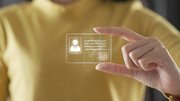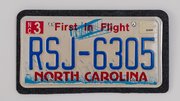News
Lobby kiosk checks visitor background
LobbyGuard's solution keeps sex offenders out of schools.
February 26, 2007
In August 2006, the school installed the LobbyGuard system. Today, visitors can check themselves in – and the school can keep tabs on who is trying to get in, using the kiosk's sophisticated background check functionality.
"The old way of doing things did not provide some of the securities that our current system provides," said principal Celeste Ellis. "Just recently, the background check alerted us on two instances of questionable persons."
When someone wants to pay a visit to Davidson Elementary, that person swipes his driver's license on the lobby kiosk. It snaps a picture and prepares a one-use visitor badge – while simultaneously checking sex offender registries and the school's internal "do not allow" list. If the visitor is a match for one of those lists, the badge isn't printed and the office is alerted.
A silent sentry
LobbyGuard Solutions LLC was formed in 2005, but the product that bears its name had been in development since 2002, according to president Kevin Allen. He said his company had modest growth its first year, with a big surge in 2006 – the company saw installations of its visitor management kiosk jump from 90 to 250.
Roughly half of those kiosks are located in schools, with the rest primarily in government buildings. In addition, the company has a few corporate clients (Michelin, Verizon Wireless) that use the kiosk for employee management. Allen said his kiosks list for $10,000, with a 40-percent discount issued to government agencies and a 50-percent discount for schools. The only other cost is a $400 annual fee, which covers all tech support and software upgrades.
In the case of schools, the aim of the kiosk is twofold: Deny access to unwanted visitors, and streamline the process for dealing with the wanted ones.
Allen said his company maintains its own database comprised of the separate sex offender registries of all 50 states – about a half-million offenders across the country.
"The other day, I counted – I've received 35 calls that said, ‘Hey, I wanted you to know, we stopped someone today,'" he said. "And that's not to say that there weren't a lot more that didn't call me."
Schools are also concerned about parental custody issues, which Allen said are much more common than encountering a sexual predator. Schools using the LobbyGuard system create their own lists of who is not allowed, chiefly to deal with parents that have been denied access to their children. "Those kinds of issues get caught all the time," he said.
In the principal's office, workers monitor the kiosk through a Web-based interface. Whenever a red flag is raised about a visitor, an alert pops up on the administrator's screen; it contains the name and photo of the visitor, along with a full background log explaining why they failed the check. If the visitor has a criminal record, its details are shown on screen, as well.
"Fortunately for us, on each of those (two) cases, the alerts turned out to be fine," Ellis said. "Even so, it caused us to re-visit how we treat situations where we are alerted of possible concerns."
Frequent visitors can be issued a key tag that allows quick entry; a scan of the tag eliminates the need to print a new badge.
The LobbyGuard system is also at work in government buildings throughoutNashville ,Tenn.
Visitors to a government building receive a temporary badge with their photo, name, and visit specific details like what floor they will be visiting. To exit the building, the visitor must return to the same location near the door and return the badge. At the end of the business day, the system is "zeroed out" to let management know that everyone who entered the building has left (or alert them if, in fact, that is not the case).
Shaw said the machines are currently being used strictly for visitor management, but he can foresee a time when he will also use them to handle employee traffic.
"They're like cell phones," he said. "Once you've had it, you can never go without it again."
Requirements for a LobbyGuard kiosk are modest – all the machine needs is a broadband connection. Allen said the software is written in C# for the .NET framework, and communicates with a Microsoft SQL Server. He also said his company is working on adding new features in the coming six months, like a fingerprint scanner and signature pad.
 ChatGPT
ChatGPT Grok
Grok Perplexity
Perplexity Claude
Claude










